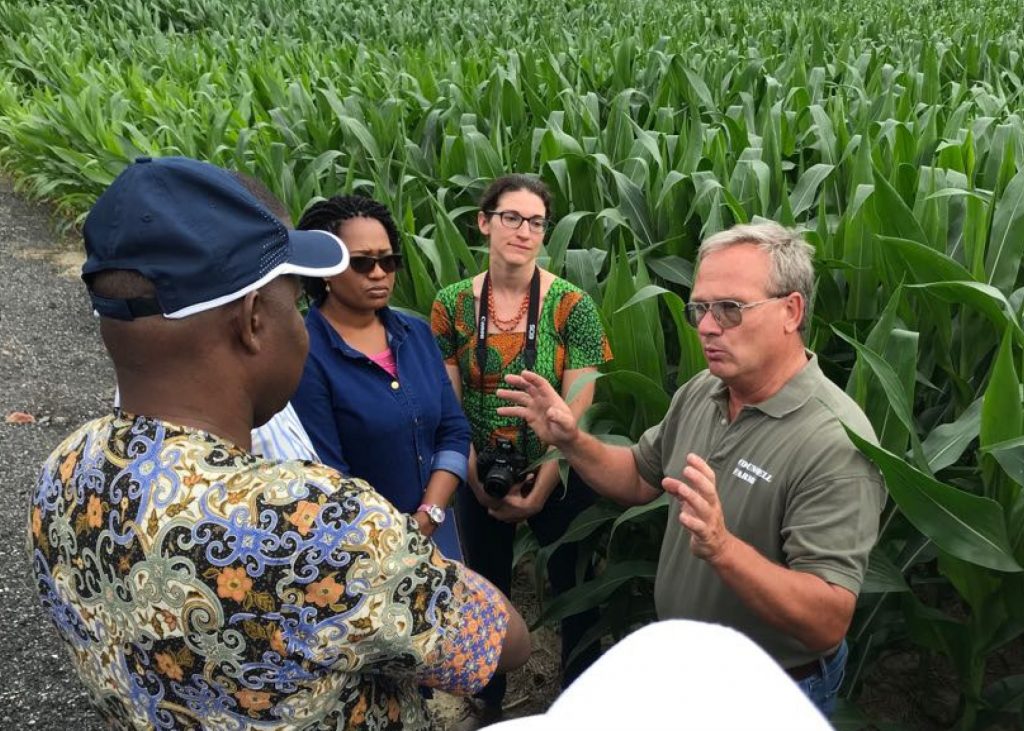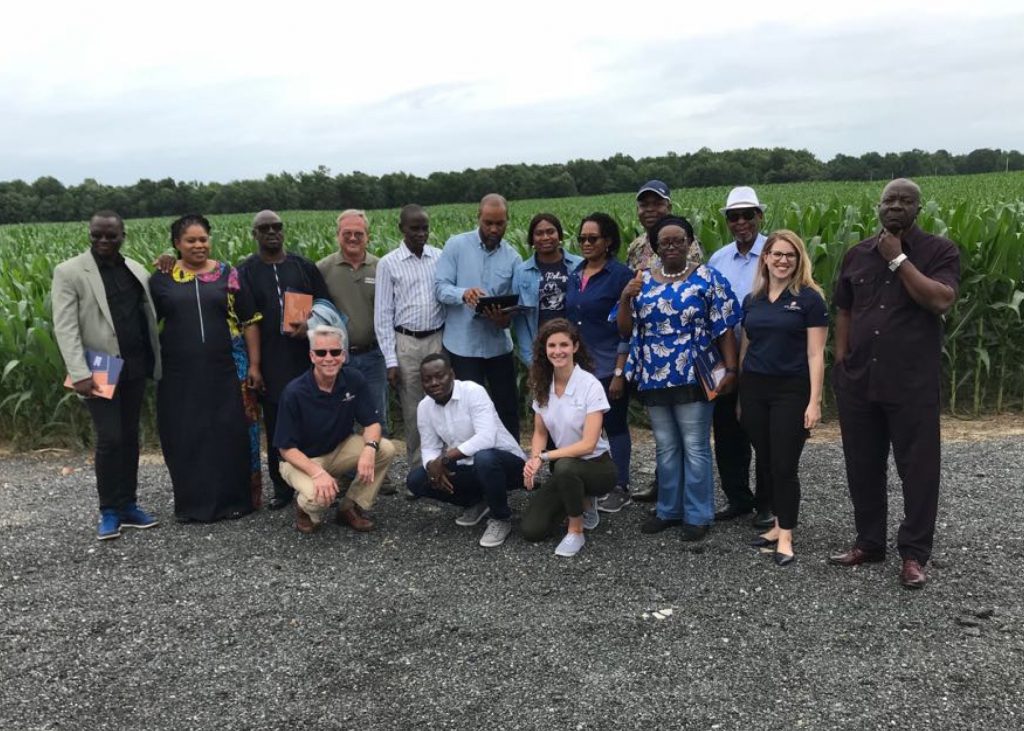A corn farm on the Eastern Shore, just 65 minutes from the U.S. Grains Council’s (USGC’s) headquarters in the heart of Washington, D.C, provided crucial perspective for a team of Nigerian legislators on how U.S. farmers benefit from advanced breeding techniques like biotechnology.
In November 2017, Nigeria rejected $10 million worth of biotech corn from Argentina, sparking the need to help increase the awareness of grower benefits and safety surrounding the use of advanced breeding techniques. The Council is working with the Nigerian government and officials to build a positive trade relationship without fear of rejected shipments. In addition, the Council advocates for the benefits of advanced breeding techniques and supports the commercialization process in country.
“The Council would like to partner with Nigerian agriculture and agribusiness to develop the poultry and feed sectors, however that work means access to the market for U.S. corn, sorghum and barley imports,” said Deb Keller, USGC chairman and farmer from Iowa. “This requires leaders with a vision of how trade is not a win-lose relationship, but in fact, through trade, we can improve lives and create new opportunities for all.”
The trade team visit to Washington, D.C., Maryland and Missouri in June 2018 was organized by the Council with support from the U.S. Department of Agriculture (USDA), CropLife International and Monsanto. Team members included 10 delegates from the national Nigerian governing body, regulatory agencies, biosafety experts and Monsanto-Africa.
As part of their time in the Washington area, the team traveled to the Eastern Shore of Maryland to visit USGC past chairman Chip Councell’s farm. There, they learned how the integration of biotech crops has decreased pesticide applications, reduced environmental impacts and improved profitability, making the overall farm more efficient. This message was reiterated in subsequent visits that exposed team members to how grain moves through the value chain from production to utilization to export.
“Our farmer and agribusiness members are our best ambassadors for showcasing the quality and reliability of U.S. coarse grains and co-products,” Keller said. “By visiting these operations, trade team visitors like those from Nigeria can witness firsthand how improved genetics and technological advancements have increased profitability and efficiency throughout the grain value chain.”
As a recognized leader on the African continent and a population that will soon exceed that of the United States, Nigeria is viewed as a key market by the U.S. agricultural community. Nigeria does not produce any biotech crops commercially now and does not have a ban on biotech crop cultivation or imports. A handful of traits are in the field trial stage in Nigeria, including Bt cowpeas, Bt cotton, biofortified sorghum and several traits for rice.
Following the passage of a new national biosafety law, the Nigerian government publicly noted its interest in the commercialization of biotech products, including cotton, maize and herbicide-tolerant soybeans – already approved in other African countries.
During meetings with U.S. federal agencies and organizations in Washington, D.C, the team discussed U.S. policies related to regulation, research and cultivation of biotech crops. Those the team met with also emphasized the continued positive safety determinations of such crops as well as how regulatory systems that are not science-based cause challenges for farmers.
“We, as the collective U.S. agricultural sector, look at Nigeria and hope for a day that the Nigerian government will see us as partners in their development, rather than competitors,” Keller said. “To see that through trade, we can can improve lives and open doors to modernization and bring our two countries closer together politically and economically.”
About The U.S. Grains Council
The U.S. Grains Council develops export markets for U.S. barley, corn, sorghum and related products including distiller’s dried grains with solubles (DDGS) and ethanol. With full-time presence in 28 locations, the Council operates programs in more than 50 countries and the European Union. The Council believes exports are vital to global economic development and to U.S. agriculture’s profitability. Detailed information about the Council and its programs is online at www.grains.org.


